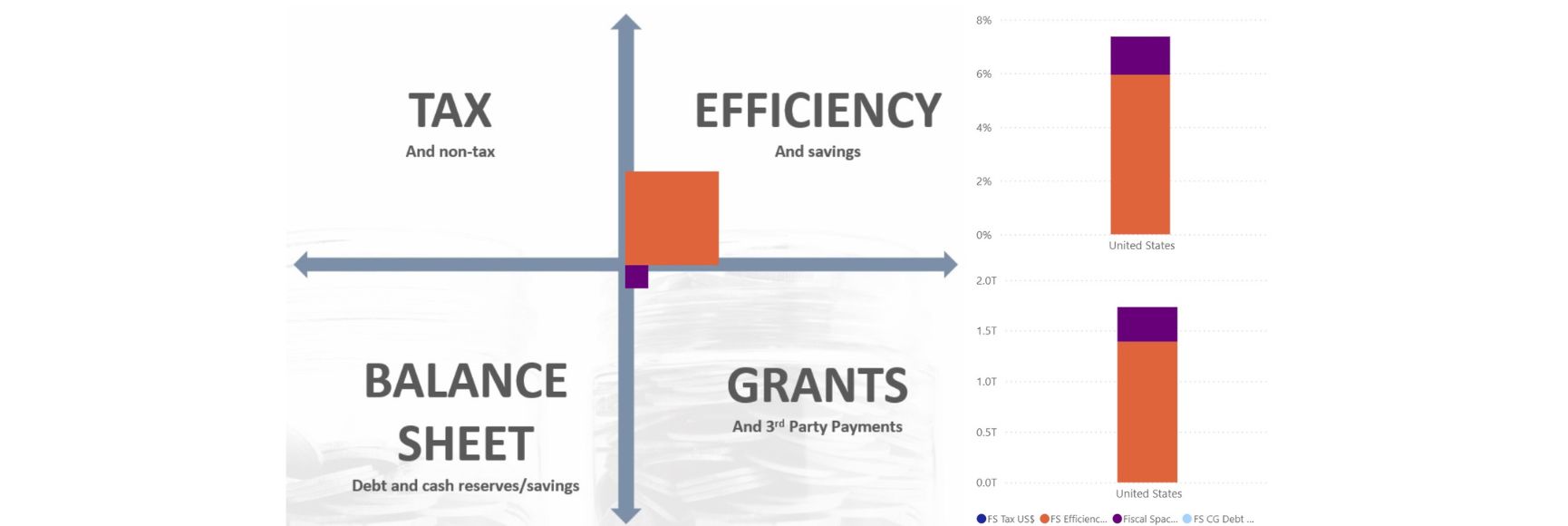Posted by Abdul Khan, IMF Fiscal Affairs Department
Public sector financial statements have traditionally been about reporting historical information, usually in financial terms e.g., showing how much tax revenue was received or what subsidy was paid out during a (past) reporting period. Although advanced countries preparing financial statements on an accrual basis provide more information in their financial statements (e.g., about assets and liabilities), the focus is still on the past and the information is still predominantly financial.
The International Public Sector Accounting Standards Board (IPSASB) would like to change all that. IPSASB is of the view that the taxpayers and other users of the financial statements need information that go beyond history and numbers. In particular, the IPSASB argues that:
- governments need to report information about its future service delivery objectives, the likely future resource needs and the likely sources of funding. Such reporting is necessary for accountability and will facilitate decision making. In particular, this information will facilitate the assessment of the capacity of the government to meet its service delivery and financial commitments in the future; and
- governments need to report information—financial and non-financial— about service delivery activities and achievements or outcomes. Such reporting is necessary for governments to discharge its obligation to be accountable and will facilitate the assessment of the economy, efficiency, and effectiveness of government operations.
IPSASB recognizes that the reporting of long-term fiscal sustainability (LTFS) and service performance information goes beyond the traditional focus of financial statements. It makes a distinction between general purpose financial reports (GPFR) and general purpose financial statements (GPFS). The GPFS would continue to be a major part of the GPFR, but the latter will also include additional information, including reports on LTFS and performance.
IPSASB recently issued (i) an exposure draft on reporting on LTFS, and (ii) a consultation paper on reporting service performance information.
Regarding LTFS reporting, IPSASB has decided to issue a recommended practice guideline rather than a mandatory standard, mainly because this is an area where practice is still evolving and IPSASB wishes to encourage innovative and flexible approaches. The LTFS reporting project was assisted by a Task Force which comprised members from various national and international organizations. Marco Cangiano and Abdul Khan from the Fiscal Affairs Department of the IMF were members of the Task force.
The consultation paper on reporting service performance information contains a number of preliminary views that, among other things, define standard terminology for terms such as objectives, inputs, outputs, and outcomes and suggests that information on the achievement of objectives should be one of the main focuses of performance reporting. In addition there are a number of issues on which IPSAS has not reached a preliminary view and is seeking feedback from respondents. These include whether the IPSASB should issue authoritative or non-authoritative guidance on this issue and whether IPSASB should identify specific indicators of performance.
The press releases announcing the issuance of these two interesting IPSASB documents are reproduced below.
IPSASB ISSUES EXPOSURE DRAFT 46―RECOMMENDED PRACTICE GUIDELINE, Reporting on the Long-Term Sustainability of a Public Sector Entity’s Finances
(New York/October 19, 2011) −The International Public Sector Accounting Standards Board (IPSASB) has published Exposure Draft (ED) 46, Recommended Practice Guideline. This ED builds on a consultation paper issued in late 2009. ED 46 provides good practice guidelines on reporting on the long-term fiscal sustainability of a public sector entity, and particularly emphasizes that entities may be able to draw on projections that are already being made by other bodies, thereby ensuring a cost-effective approach.
The sovereign debt crisis has emphasized the significance of the fiscal condition of governments and other public sector entities to the global economy. There have been heightened concerns about the ability of governments to meet debt servicing obligations and the extent to which they can maintain current policies and meet current and future obligations related to entitlement programs, without raising taxes and contributions or increasing debt to unsustainable levels.
These concerns have emphasized the importance of providing projections of inflows and outflows of resources over the longer term, together with narrative explanations of the main risks facing governments and other public sector entities. This information allows the users of general purpose financial reports to assess the extent to which current policies are sustainable, and complements the financial statements, which remain at the core of public sector financial reporting.
“The continuing volatility in the world’s financial markets has reinforced the IPSASB’s conviction that financial statements alone cannot provide all the information necessary to enable citizens, investors, and other users to evaluate the long-term fiscal sustainability of governments and public sector entities,” explained Andreas Bergmann, chair of the IPSASB. “ED 46 aims to provide straightforward guidance to entities to ensure that information on their fiscal sustainability is complete, relevant, and understandable. I encourage our constituents to give this ED full consideration, provide feedback, and assess the need to report on the long-term sustainability of their finances.”
This IPSASB project has continued to benefit greatly from the oversight of a Task Force with a wide membership, including standard setters with experience reporting on long-term fiscal sustainability, governments that have many years’ experience reporting on long-term fiscal sustainability, and supranational organizations, such as the International Monetary Fund (IMF), the Organisation for Economic Co-operation and Development (OECD), and Eurostat, the statistical office of the European Union.
ED 46 is available to download free of charge from the IFAC website. The IPSASB encourages IFAC members, associates, and regional accountancy bodies to promote the availability of this Exposure Draft to their members and employees.
IPSASB ISSUES CONSULTATION PAPER ― REPORTING SERVICE PERFORMANCE INFORMATION
(New York/October 21, 2011) −The IPSASB has approved the Consultation Paper Reporting Service Performance Information. The IPSASB considers that reporting service performance information is necessary to meet the objectives of financial reporting, which are to provide information that is useful to users of General Purpose Financial Reports (GPFR) for accountability and decision making. This project aims to present a principles-based approach to developing a consistent framework for public sector entities.
IPSASB Chair Andreas Bergmann stressed, “Service performance information is essential for accountability for the efficient and effective use of resources, service provision, and achievement public sector entities’ objectives. Service performance reporting can provide financial and non-financial, as well as quantitative and qualitative, information about the achievement of service delivery objectives in the current reporting period, as well as anticipated future service delivery activities and resource needs.”
Various public sector entities around the world currently report service performance information. In practice, such reporting is diverse. The objective of the IPSASB’s service performance information project has been to improve the consistency and comparability of such information across jurisdictions and between entities.
Overall, the Consultation Paper proposes a framework for reporting service performance information. The framework includes information on the scope of the service performance information reported, the public sector entity’s objectives, the achievement of those objectives, and a narrative discussion of the achievement of all the objectives. The Consultation Paper also proposes a standardized service performance information terminology and working definitions to enhance users’ understanding of service performance information reported as outlined in the proposed framework.
The Consultation Paper is available to download free of charge from the IPSASB website. The IPSASB encourages IFAC members, associates, and regional accountancy bodies to promote the availability of this consultation paper to their members and employees.
Note: The posts on the IMF PFM Blog should not be reported as representing the views of the IMF. The views expressed are those of the authors and do not necessarily represent those of the IMF or IMF policy.





